anyone of you have an idea to build a yml for mysql updating of root password and granting privileges? I have created my playbook and on the fresh install its working as expected and no issue at all. But when I do vagrant provision again it now fails to set the root password and I'm getting an error. Below are my codes
mysql.yml
---
- name: Install the MySQL packages
apt: name={{ item }} state=installed update_cache=yes
with_items:
- mysql-server
- mysql-client
- python-mysqldb
- libmysqlclient-dev
- name: drop database {{ dbname }}
mysql_db:
name: "{{ dbname }}"
login_user: "{{ dbuser }}"
login_password: "{{ dbpass }}"
state: absent
delegate_to: "{{ dbhost }}"
run_once: true
- name: create database {{ dbname }}
mysql_db:
name: "{{ dbname }}"
login_user: "{{ dbuser }}"
login_password: "{{ dbpass }}"
state: present
delegate_to: "{{ dbhost }}"
run_once: true
- name: ensure mysql is running and starts on boot
service: name=mysql state=started enabled=true
- name: copy .my.cnf file with root password credentials
template: src=my.cnf.j2 dest=/root/.my.cnf owner=root mode=0600
- name: update mysql root password for all root accounts "{{ dbpass }}"
mysql_user: name={{ dbuser }} host={{ item }} password="{{ dbpass }}" priv="{{ dbname }}.*:ALL,GRANT"
with_items:
- localhost
- 127.0.0.1
- name: grant privilege on "{{ dbname }}" to "{{ dbuser }}"
mysql_user:
name: "{{ item.user }}"
host: "{{ item.host }}"
password: "{{ dbpass }}"
login_user: "{{ dbuser }}"
login_password: "{{ dbpass }}"
priv: "{{ dbname }}.*:ALL"
state: present
with_items:
- { user: "{{ dbuser }}" , host: localhost }
- { user: "{{ dbuser }}" , host: 127.0.0.1 }
delegate_to: "{{ dbhost }}"
run_once: true
- name: ensure anonymous users are not in the database
mysql_user: name='' host={{ item }} state=absent
with_items:
- 127.0.0.1
- localhost
- name: remove the test database
mysql_db: name=test state=absent
my.cnf.j2
[client]
user=root
password={{ dbpass }}
defaults/main.yml
---
dbhost: localhost
dbname: mydb
dbuser: root
dbpass: root
I'm able to do everything just fine if its fresh install but running it the second time around gives me the error below
